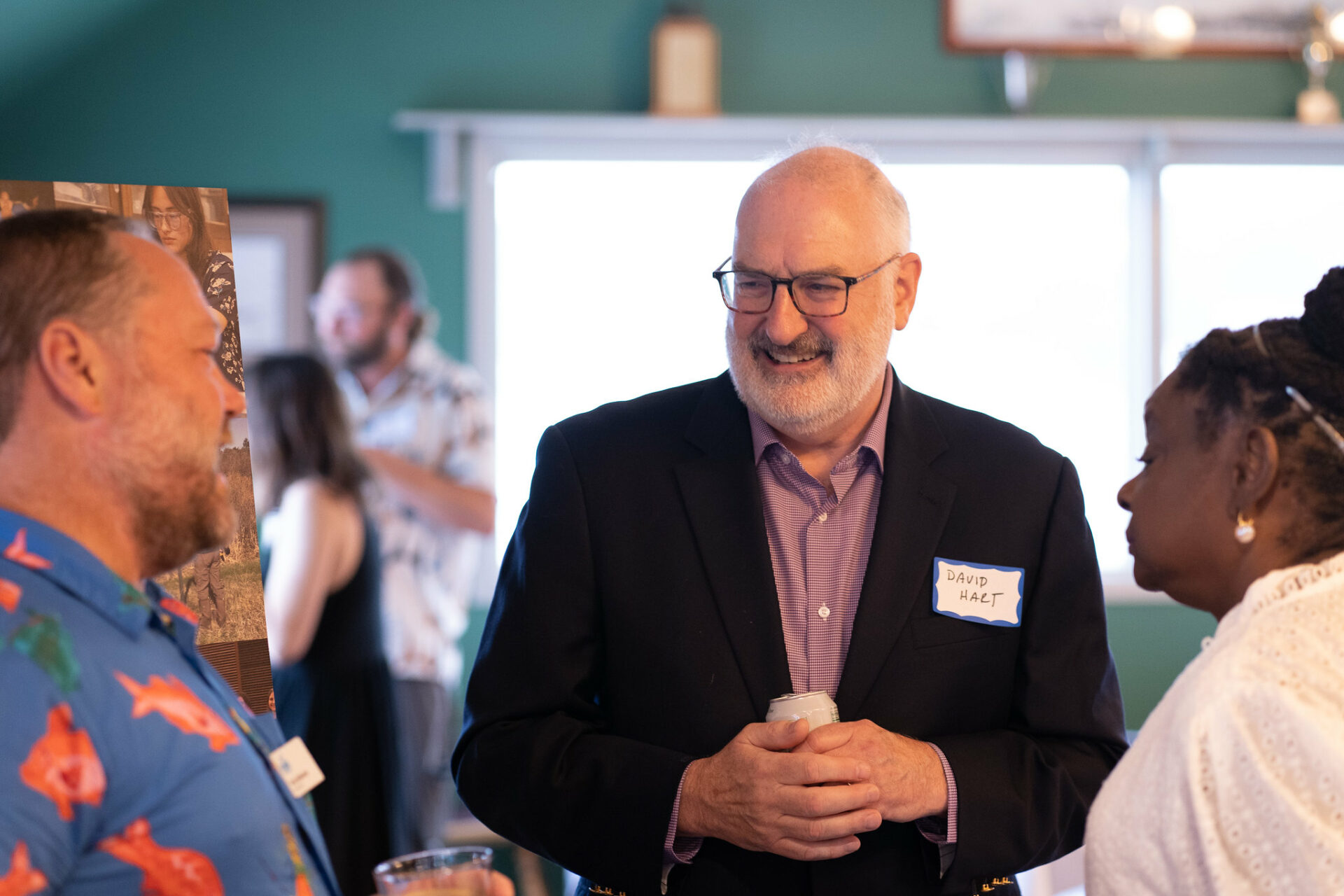The newest member of the University of Wisconsin Sea Grant’s advisory council has made a career out of capitalizing on impeccable timing.
Today, Steve Brueske is the meteorologist-in-charge of NOAA’s National Weather Service (NWS) Milwaukee/Sullivan office. But back in the 1980s, he was a college chemistry major at a time when the U.S. Air Force was desperately recruiting science majors to train as meteorologists. A decade later, he was one of the first military instructors to begin developing training materials for NEXRAD, the next generation Doppler-based weather radar system that set the gold standard for monitoring and issuing tornado warnings.
“I had a chance to get in on the ground floor of this new technology we now use all the time,” Brueske, 52, recalled.
Brueske left the military in 1992, just as the NWS was beefing up its radar training unit. His training skills were a perfect fit, and he ended up at NWS ground zero—also known as Norman, Oklahoma—home to the nation’s Storm Prediction Center and their radar training facility. As one of 34 instructors assigned to the Warning Decision Training Branch, Brueske helped train more than 2,500 NWS and Department of Defense employees on new weather radar technology.
Brueske has more than a passing familiarity with Sea Grant’s mission. He served as the first-ever science and operations officer at NWS’s Charleston, South Carolina, Weather Forecast Office at the same time NOAA was creating its Coastal Services Center there. He’s also currently one of two NWS members on NOAA’s Great Lakes Regional Collaborative team.
All of that experience and connections will be valuable, said UW Sea Grant Director Jim Hurley.
“Steve joins us at a particularly opportune time. We’re moving into some new research areas that focus on the relationship between the weather and coastal communities, and Steve can really help us integrate that.”
Brueske agrees. “Working with Sea Grant is an opportunity to work with other people in the environmental science field and expand our support to people throughout Wisconsin and the Great Lakes” said Brueske. “I’ve seen a great deal of the environmental science NOAA is funding to benefit the Great Lakes.”
That list obviously includes water issues, severe weather events and the increasing effects of climate change on the Great Lakes region. But Brueske is far more than just the guy who forecasts the weather in the Midwest for the next seven days. His office also issues forecasts for rivers and streams in Southeast Wisconsin, and they work with the U.S. Geological Service and local communities to install sensors to monitor river levels across the state.
“We come in early in the water cycle,” he said. “Our contribution is right at the beginning—we’re measuring, observing and collecting water data, and a big part of my job is to make sure the observational data we collect are correct. After all, that data will be used 100 years from now. So I think my experience fits into what Sea Grant is trying to do.”
In just a short time Brueske’s already made a big difference for UW Sea Grant: He served on the search and screen committee that hired Julia Noordyk, the organization’s new coastal communities outreach specialist. He’s looking forward to lending his expertise to the organization’s proposal review process later this year, a process that includes several climate change-related research proposals.
“It’s nice to be able to work with scientists solving environmental challenges,” said Brueske. “That’s rewarding.”





